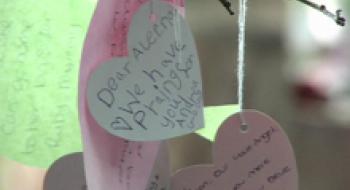Training paediatric staff in Islamic end of life care

Best Practice: Creating a day-long course for doctors, nurses and allied health professionals in Islamic paediatric end of life care
Who did it: Paul Nash and Zamir Hussain, Senior Chaplains at Birmingham Children’s Hospital; Proffessor Stella Mills and Melanie Lee of Staffordshire University
A child dying is one of the most traumatic things that can happen. At such a time ensuring the appropriate religious and spiritual care is offered can be vital.
Although chaplains offer specific religious care, all staff involved can offer more effective care if they are aware of pertinent issues for particular faiths.
The chaplaincy created a pilot Islamic end of life and bereavement care course for doctors, nurses and allied health professionals as a particular lack of confidence in this area had been identified.
We wanted staff to be able to do their job effectively without fearing they may offend the patient or their family because they don’t understand faith specific practices and customs.
We also needed the resource to be specifically for those in paediatric care as there can be significant differences between the care of adults and children and young people.
We consulted the Paediatric Chaplaincy Network for Great Britain and Ireland, local and national faith leaders and BCH staff as we developed this.
We also consulted staff from Staffordshire University for their technical expertise in the computer-based aspect of the training, which was a blend of e-learning, demonstration time in the class room and simulation in a clinical training area.
The e-learning aspect included time spent in virtual rooms, a hospital bed and the rainbow bereavement room, when you click on an item to see an explanatory video or text.
Classroom training included demonstration by expert Islamic staff illustrating how to wash and lay out a Muslim child. There was also simulation with staff acting as themselves, role-playing parents and using newly created care pathways and personalizable care plans.
This day also included engagement with artefacts, explanations fo the differences between faiths and a folder with essential information to take away.
The learning was monitored with short pre and post training tests and confidence assessments. This helped staff to identify their learning needs and tutors to assess effectiveness of training.
The short term impact of the training was encouraging with excellent feedback from the pilot study. Average development showed enormous leaps in confidence, knowledge and understanding.
In the long term we aim to train all key staff at the hospital in this way. We also hope to produce the equivalent for daily care for Muslim families and then for five other major world faiths and spiritual care of those with no particular belief.
Staffordshire University staff helped us overcome the technological obstacles of virtual rooms. A key thing for us was finding a partner with realistic costs and who came onsite to learn from us and replicate our context.
Finance was through BCH Charities and Education and the National Paediatric Palliative Care Bid.
For further information contact: Paul Nash, Senior Chaplain, Birmingham Children's Hospital at Paul.Nash@bch.nhs.uk.